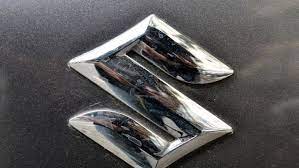The nation’s top auto CEOs came together to offer the well-worn message that we should use all of our resources to reduce carbon emissions, not only batteries when Japan hosted the Group of Seven leaders last week. While automakers led by Tesla Inc. and BYD Co. press the accelerator on electric-vehicle manufacturing, Akio Toyoda of Toyota Motor Corp. has been making this pitch for many years. However, he has received criticism for it.
Koji Sato, who had previously led Lexus, was given the position of CEO by Toyoda, who made the announcement two weeks later. He was asked to continue as chairman of the Japan Automobile Manufacturers Association, or JAMA, in a stunning move that seemed prescient of what occurred in Hiroshima last week. In addition to EVs, the organisation also showcased hydrogen fuel and carbon-neutral fuels during an expo held in conjunction with the G7 summit.
Toshihiro Suzuki’s perspective on EV sales in India and the need for diverse solutions
In stark contrast to the European Automobile Manufacturers’ Association, which lost many members last year because they didn’t agree with others on how to best address climate change, the Japanese auto industry is united. Many automotive companies addresses the fact that JAMA is unanimous and also has significant consequences for the global energy transition because Japan continues to be the world’s largest exporter of passenger cars.
Last week, Bloomberg spoke with the CEOs of five Japanese automakers about how they had come to the same conclusion: As long as battery materials are in short supply and the electricity used to recharge EVs is still transitioning to renewable sources, a variety of powertrains and alternative fuels will be required to reduce emissions. Suzuki Motor Cop., which entails shovelling you-know-what, is one approach that one might consider.
To confirm that biogas made from cow manure could be used to power Suzuki vehicles using compressed natural gas, the government agency, the largest dairy producer in Asia, and the majority owner of India’s leading automaker announced an agreement with them in January. According to President Toshihiro Suzuki, EV sales in India are not expected to take off until household access to energy is closer to becoming universal. He said, “It’s wrong to assume that there’s only one solution,” and claimed that the world is “a bit over-focused” on battery-electric cars.
